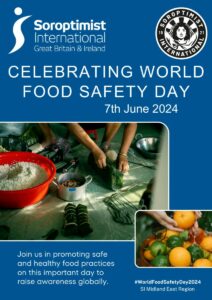 My association with food has been brought on by my upbringing in the Far East. Where food and its preparation placed a key role in our culture and society. Very often when people first greet each other they will ask “Have you eaten yet?” as opposed to in the West “How are you?”. This is crucial to address their wellbeing where poverty and famine during ancient regimes was prominent.
My association with food has been brought on by my upbringing in the Far East. Where food and its preparation placed a key role in our culture and society. Very often when people first greet each other they will ask “Have you eaten yet?” as opposed to in the West “How are you?”. This is crucial to address their wellbeing where poverty and famine during ancient regimes was prominent.
In more modern times, we are still being greeted by the same phrases ensuring we have eaten and if not, then followed by an invitation to dine at home or eat out. This is customary to ensure we eat healthily and safely. Higher standard of food preparation is now common, except in the most remote villages.
This makes me passionate about food, as we look at how Soroptimists globally can improve food safety hygiene in those areas where first world standards do not exist.
Educate, Be Alert and Be Aware
One of the ways, is to link in World Food Safety Day, initiated by the World Health Organisation. World Food Safety Day was announced as an annual celebration by the United Nations General Assembly on June 7, 2018. After this, the global health body decided to continue to celebrate in a big way, so that awareness can be spread across the world. This year, World Food Safety Day (WFSD) is on Fri 7th June 2024.
Every year the Food and Agriculture Organisation of the United Nations (FAO) and the World Health Organisation (WHO) jointly lead the celebrations of the World Food Safety Day. As we cannot have food security without food safety, since globally, 1 in 10 people are affected by foodborne disease every year.
The theme “Food Safety – prepare for the unexpected”. This campaign will explore issues around unexpected food safety incidents that can occur even when we have played our part to keep food safe.
On WFSD we remember that food safety is everyone’s business and that by working together we ensure that our food is safe to eat. But in exceptional circumstances even if we play our part the unexpected can happen. The case in point with the recent Devon outbreak of cryptosporidium which was linked to contaminated water.
Unexpected food safety events can range from minor to major crises. But even then, there’s always something that can be done to keep food safe. For example, Government and Industries must have plans in place in case of an unexpected event or emergency occurs. Ensuring no time is wasted by implementing the necessary actions with rapid exchange of information, effective communication, food safety management planning and decisive actions by food operators. These will help save lives.
Food Safety awareness
This refers to how we handle, prepare and store our food in a way to best reduce the risk of an individual becoming sick from foodborne illnesses.
Where we support women and girls in under developing countries, providing information and educating by using methods like: Preserves – jams and pickles, fermentation, smoke, brine and salting. These are popular methods of preserving food where refrigeration is not readily available and to reduce food waste.
The five elements to safer food are: –
- Keep clean.
- Separate raw and cooked.
- Cook thoroughly.
- Keep food at safe temperatures.
- Use safe water and clean utensils.
There are also the 4 Cs for good food hygiene: –
- Cleaning
- Cooking
- Cross Contamination
- Chilling
Allergies Awareness
For example Natasha’s Law, which is to protect people with food allergies. They rely on the transparency of ingredients and food labelling for prepacked food, if not lives will be put at risk.
Finally, as we anticipate the kinds of events that might occur, whether it be a natural disaster, such as flooding or a volcanic eruption we can ensure the risk to food safety is minimised. And at home, consumer’s food safety knowledge can avert problems in unexpected situations.
As Soroptimists we will raise awareness about what we, no matter what our roles are, can do to be ready for the unexpected.
Kam Britland
SI Midland East Region
SI Mansfield & District


